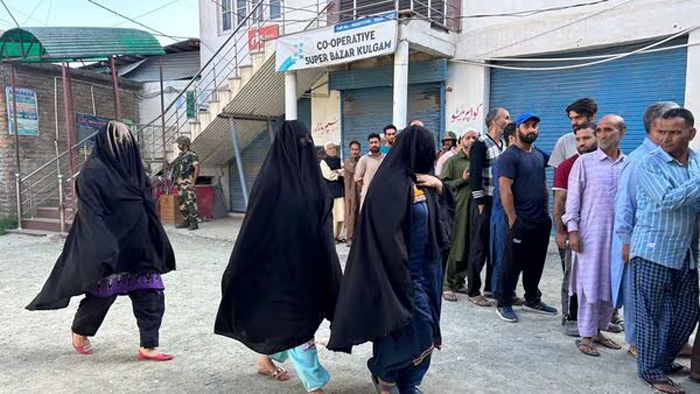Jammu and Kashmir assembly election 2024: Phase 1 polling for 24 seats today amid massive security
For the first time in a decade, voters in Jammu and Kashmir are heading to the polls on Wednesday for the first of the three-phase assembly election 2024.
As per the Election Commission of India (ECI), over 23 lakh voters will determine the fate of 219 candidates, including 90 independents, contesting for 24 assembly constituencies—eight in three districts of Jammu region and 16 in four districts of Kashmir valley.
The government has implemented multi-tier security arrangements, involving the Central Armed Paramilitary Forces (CAPF), Jammu and Kashmir Armed Police, and Jammu and Kashmir Police.
Here are 10 points on Jammu and Kashmir assembly election:
This is the first assembly election in Jammu and Kashmir since the abrogation of Article 370 in August 2019.
The ECI has deployed 14,000 polling staff to oversee the process at 3,276 polling stations today.
In phase 1, as many as 1.23 lakh youth aged 18 to 19 years along with 28,309 persons with disabilities (PwDs) and 15,774 elderly voters over the age of 85, are eligible to exercise their franchise.
Prominent candidates from the Kashmir region running in phase one include PDP’s Iltija Mufti, CPI (M)’s Mohammad Yousuf Tarigami and Congress’ Ghulam Ahmad Mir.
Although allied, NC and Congress have fielded separate candidates in Banihal, Bhaderwah, and Doda. Rebel NC leader Pyare Lal Sharma runs independently in Inderwal, and BJP rebels Rakesh Goswami and Suraj Singh Parihar are contesting from Ramban and Padder-Nagseni.
In Jammu region, former ministers Sajjad Kitchloo (NC) and Vikar Rasool Wani (Congress), along with Sunil Sharma (BJP) and Ghulam Mohammad Saroori (independent) are key candidates.
There are 302 urban and 2,974 rural polling stations, each staffed by four election officials, including the presiding officer.
Over 35,000 Kashmiri Pandits will be voting for the first phase polls in Jammu and Kashmir. ECI said it has eased paperwork for people who shifted from Kashmir to Jammu and Udhampur in the nineties to cast their votes to facilitate their participation in the elections
Jammu and Kashmir has been without an elected government since June 2018, when Bharatiya Janata Party (BJP) broke its alliance with Peoples’ Democratic Party (PDP) forcing Mehbooba Mufti to resign as chief minister.
Of the total 90 assembly constituencies in Jammu and Kashmir, 74 are reserved for general, nine for Scheduled Tribes, and seven for Scheduled Castes.
In Pulwama, Waheed Para, an accused in a terror case, faces a tough challenge from his former party colleague Mohammad Khalil Bandh, who is now running on the NC ticket.


Comments are closed.